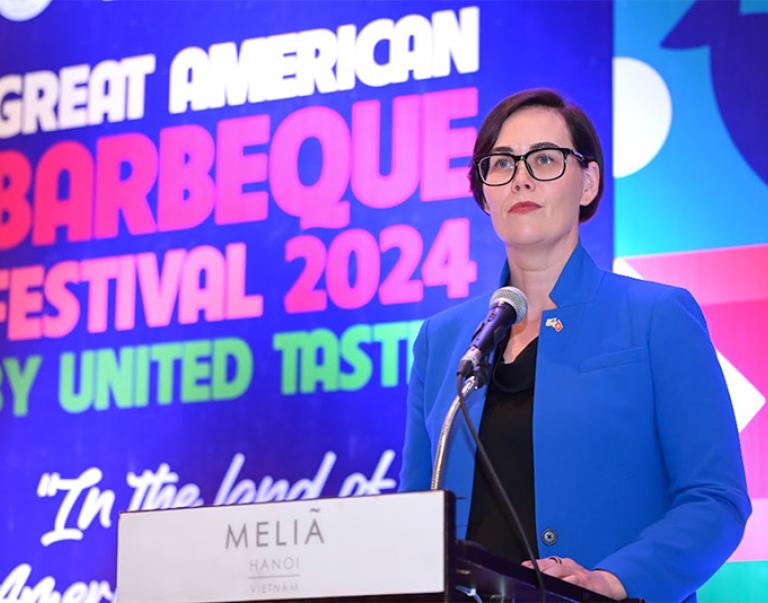WASHINGTON, July 13, 2015 - Today, Agriculture Secretary Tom Vilsack announced that the U.S. Department of Agriculture is proposing to improve access to groceries for homebound seniors and people with disabilities who participate in the Supplemental Nutrition Assistance Program. USDA is proposing for the first time to permit grocery purchasing and delivery services run by government and non-profit organizations to accept SNAP benefits as payment, allowing for home delivery to those unable to shop for food. Vilsack will announce the proposal today during the 2015 White House Conference on Aging. Nationally, only 42 percent of eligible elderly individuals participate in SNAP, compared to 83 percent for all people who are eligible.
"Home delivery of groceries is an important step forward in serving the needs of these vulnerable populations. Allowing homebound seniors and people with disabilities to use their SNAP benefits through government and non-profit home delivery services will help ensure they have access to healthy foods," Secretary Vilsack said, noting that one in five SNAP participants is either elderly or disabled. "This issue has a particular importance for seniors living in rural areas, as America's rural population is older than the nation overall and rural seniors experience higher poverty than seniors nationwide."
Authorized by the 2014 Farm Bill, the proposed rule outlines eligibility and participation criteria for purchasing and delivery services serving the homebound elderly and disabled, and seeks comment from stakeholders.
In addition, USDA's Food and Nutrition Service will soon begin seeking up to 20 food purchasing and delivery services to participate in a one year pilot program. Lessons learned during the pilot will used to help shape the final rule.
USDA is committed to improving the health and wellbeing of older adults, ensuring that all older Americans have access to healthy food, and that older adults in rural America have access to housing. More information about USDA efforts to serve older Americans, is available on our newly released Fact Sheet: USDA Support for Older Americans.
As the nation's first line of defense against hunger, SNAP helps put food on the table for millions of low income families and individuals every month and has never been more critical to the fight against hunger. SNAP is a vital supplement to the monthly food budget of more than 46 million low-income individuals. Nearly half of SNAP participants are children, nine percent are over 60 and more than 40 percent of recipients live in households with earnings.
For more information about the pilots, the proposed rule or to submit comments, please visit the FNS list of Federal Register Documents for SNAP.
Today's announcement was made possible by the 2014 Farm Bill, which builds on historic economic gains in rural America over the past six years, while achieving meaningful reform and billions of dollars in savings for the taxpayer. Since enactment, USDA has implemented many provisions of this critical legislation, providing disaster relief to farmers and ranchers; strengthening risk management tools; expanding access to rural credit; funding critical research; establishing innovative public-private conservation partnerships; developing new markets for rural-made products; and investing in infrastructure, housing and community facilities to help improve quality of life in rural America. For more information, visit www.usda.gov/farmbill.
#
USDA is an equal opportunity provider and employer. To file a complaint of discrimination, write: USDA, Office of the Assistant Secretary for Civil Rights, Office of Adjudication, 1400 Independence Ave., SW, Washington, DC 20250-9410 or call (866) 632-9992 (Toll-free Customer Service), (800) 877-8339 (Local or Federal relay), (866) 377-8642 (Relay voice users).



